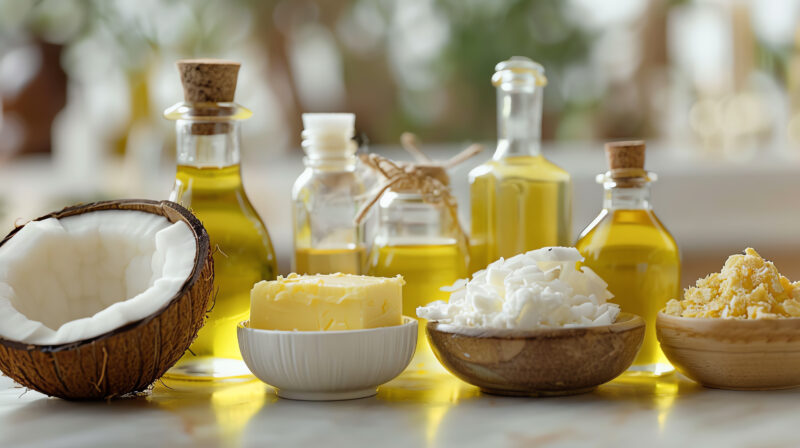
The Difference Between Cold-Pressed and Refined Oils
Oils play a crucial role in our diet, providing essential fatty acids, antioxidants, and fat-soluble vitamins. However, not all oils are created equal. One of the key distinctions is whether an oil is cold-pressed or refined. The difference in processing affects not only the nutritional value but also the taste, aroma, and overall health benefits of the oil.
Cold-Pressed Oils: The Purest Form
Cold-pressed oils are extracted through mechanical pressing without the use of heat or chemical solvents. The process typically involves crushing the seeds, nuts, or fruits and slowly pressing them to extract oil. Because the temperature remains low (usually below 49°C or 120°F), the oil retains its natural nutrients, enzymes, and antioxidants.
Benefits of Cold-Pressed Oils:
- Nutrient-Dense: Since they are minimally processed, cold-pressed oils retain vitamins (such as vitamin E and K) and essential fatty acids.
- Rich in Antioxidants: These oils contain natural antioxidants like polyphenols and tocopherols, which help combat free radicals and support overall health.
- Better for Digestion: Cold-pressed oils are more easily digested and utilized by the body compared to refined oils.
- Unaltered Flavor & Aroma: The natural taste and scent remain intact, making them ideal for dressings, dips, and finishing touches on meals.
- Less Processing = Fewer Chemicals: No bleaching, deodorizing, or chemical extraction is involved, making these oils a cleaner and healthier choice.
Examples of Cold-Pressed Oils and Their Benefits:
- Extra Virgin Olive Oil: High in monounsaturated fats and polyphenols, it supports heart health, reduces inflammation, and has strong antioxidant properties.
- Coconut Oil: Contains medium-chain triglycerides (MCTs) that provide quick energy and support brain function. Also has antibacterial and antifungal properties.
- Flaxseed Oil: A rich source of omega-3 fatty acids (ALA), beneficial for brain health and reducing inflammation. Best consumed raw.
- Avocado Oil: High in monounsaturated fats and vitamin E, great for skin health and cardiovascular support.
- Sesame Oil: Packed with lignans and antioxidants, known for its anti-inflammatory properties.
Refined Oils: Highly Processed for Shelf Stability
Refined oils go through extensive processing, including heat treatment, chemical solvents (such as hexane), bleaching, and deodorization to remove impurities, extend shelf life, and create a neutral taste. This process can strip the oil of essential nutrients and antioxidants, making it less beneficial for health.
Reasons Why Oils Are Refined:
- To remove strong flavors and odors (creating a more neutral-tasting oil).
- To increase the smoke point, making it suitable for high-heat cooking and frying.
- To remove natural pigments and impurities, creating a lighter, clearer appearance.
- To improve shelf stability by preventing oxidation.
Downsides of Refined Oils:
- Nutrient Loss: The high heat and chemical processing destroy vitamins, antioxidants, and beneficial compounds.
- Contains Residual Solvents: Some refined oils may contain traces of chemical solvents used in extraction.
- More Susceptible to Oxidation: The refining process removes natural antioxidants, making these oils more likely to turn rancid and produce harmful free radicals when heated.
Examples of Refined Oils and Their Uses:
- Canola Oil: Often genetically modified and heavily processed, canola oil is high in omega-6 fatty acids, which can contribute to inflammation if consumed in excess.
- Vegetable Oil (Soybean, Corn, Sunflower): Highly processed and lacking natural nutrients, often used in processed foods and fast-food frying.
- Refined Palm Oil: Used in packaged foods due to its long shelf life but often comes from unsustainable sources.
- Refined Coconut Oil: Has a higher smoke point than virgin coconut oil but lacks some of the antimicrobial benefits.
- Refined Sunflower Oil: Stripped of its natural vitamin E and prone to oxidation when heated.
Which One Should You Choose?
- For Raw Consumption (Salads, Dressings, Drizzles): Always opt for cold-pressed oils like extra virgin olive oil, flaxseed oil, and avocado oil.
- For Cooking (Low to Medium Heat): Virgin coconut oil and cold-pressed sesame oil work well.
- For High-Heat Cooking: If you need an oil with a high smoke point, go for avocado oil or a naturally refined option like high-oleic sunflower oil.
- Avoid highly processed oils (such as canola, soybean, and vegetable oil) whenever possible, as they lack nutrients and can contribute to inflammation.
By choosing cold-pressed oils over refined oils, you are opting for a healthier, more nutrient-dense option that provides real benefits to your body. While refined oils may be more convenient and longer-lasting, they come at the cost of lost nutrients and potential health risks. Investing in high-quality oils can make a significant difference in your overall health, supporting everything from brain function to heart health and inflammation reduction.






